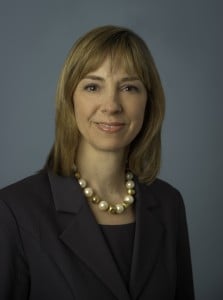Dr. Michele Dunne is director of the Atlantic Council‘s Rafik Hariri Center for the Middle East. She has served in the White House on the National Security Council staff, and on the State Department’s Policy Planning Staff and in its Bureau of Intelligence and Research. She was also a diplomat in Cairo and Jerusalem. She sat down with Reza Akhlaghi, senior writer at Foreign Policy Association Blogs, to discuss Egyptian elections.

Michele Dunne
What, in your opinion, were the key driving factors behind the mass revolt against Hosni Mubarak’s regime?
Egyptians were disappointed by the fact that the benefits of economic reform were not broadly shared, angered by persistent police brutality and human rights abuses, and disgusted by rigged elections and corruption by high level officials. As Mubarak became increasingly elderly and ill and failed to provide for an acceptable successor as president—other than his son, who was widely disliked—opponents of his regime saw their chance to galvanize public anger against him.
How do you assess the road ahead for the Egyptian society in its transition to democracy given the absence of civil institutions? If the road ahead is bumpy, what are the key likely obstacles?
Egypt has many important and credible civil institutions including a respected judiciary, a parliament enjoying electoral legitimacy, a lively press, and many credible non-governmental organizations. Still, if Egypt is going to become a democracy there will need to be a new balance of power between civil and military institutions and that will probably take years to work out. Internal security forces and police will need thorough reform so that Egyptians come to trust them as working for citizens, not against them. Islamist and non-Islamist political groups will need to work out many issues related to the writing of a new constitution and the rights of citizens, including, of course, women and non-Muslims. And the economy will need to get back on its feet and start moving in a positive direction in order to support political processes.
The doctrine based on ‘The Reconstruction of Religious Thought in Islam’ had a significant impact on the Iranian revolution and played itself out in the lectures of and publications by Ali Shariati. Do you think this doctrine will have an impact on Egypt’s evolving political discourse and subsequently on the legislative process given the influence Islamists wield in the parliament?
There are several different Islamic philosophies—Muslim Brotherhood, Salafi, Sufi, Azharite—in Egypt that compete for influence within the legal, political, and social realms. And non-Islamists, whether non-Muslims or Muslims within secular political movements, have been much more assertive since the Egyptian revolution. Should Freedom and Justice Party (FJP) candidate Mohammed Morsy win the presidential election in June, which is a real possibility, the Brotherhood trend will be more dominant, but still it will not dominate utterly.
The leading candidates in last week’s presidential elections come from competing political ideologies and strive for greatest possible influence on a new constitution that has yet to be written. What mechanisms should be in place to prevent the emergence of a new authoritarian system in Egypt?
It would have been better for Egyptians to elect a constituent assembly and write a new constitution before electing a parliament or president, but unfortunately that was not the route chosen by the military leadership that led the transition (although many Egyptians called for that). So now Egyptians will be writing a constitution in an environment in which certain political forces are confident of their public support, which they have tested at the ballot box, and will be less willing to compromise on their positions. Egyptians also pushed for a set of supraconstitutional principles about the rights of citizens to precede the writing of the constitution, then backed off when the military tried to manipulate the principles to ensure freedom from civilian oversight of the armed forces.
Given the Iranian government’s strength in the use of religious ideology in formulating and projecting its foreign policy, do you believe the Islamists in Egypt will warm up to closer ties with Iran and perhaps adopt aspects of Iran’s theocratic principles in formulating a new constitution?
Very few Egyptians consider the Iranian system to be a desirable model; Brotherhood supporters are more attracted by the Turkish model and Salafis by the Saudi model. Egypt most likely will normalize ties with Iran but the Egyptian government will remain wary of Iranian influence, as Egypt is a strongly Sunni country.
In what ways do you see the role of the United States evolve in the Arab world? What are the key factors shaping a new role for the United States in the Arab world?
The United States needs to find a way to support the growth of genuine democracy in Arab countries that have entered transitions, while also protecting US interests such as countering terrorism and supporting the safe flow of petroleum and the security of Israel. This will be complicated, but the United States has always had multiple and conflicting interests in the region, so it will be worked out over time.